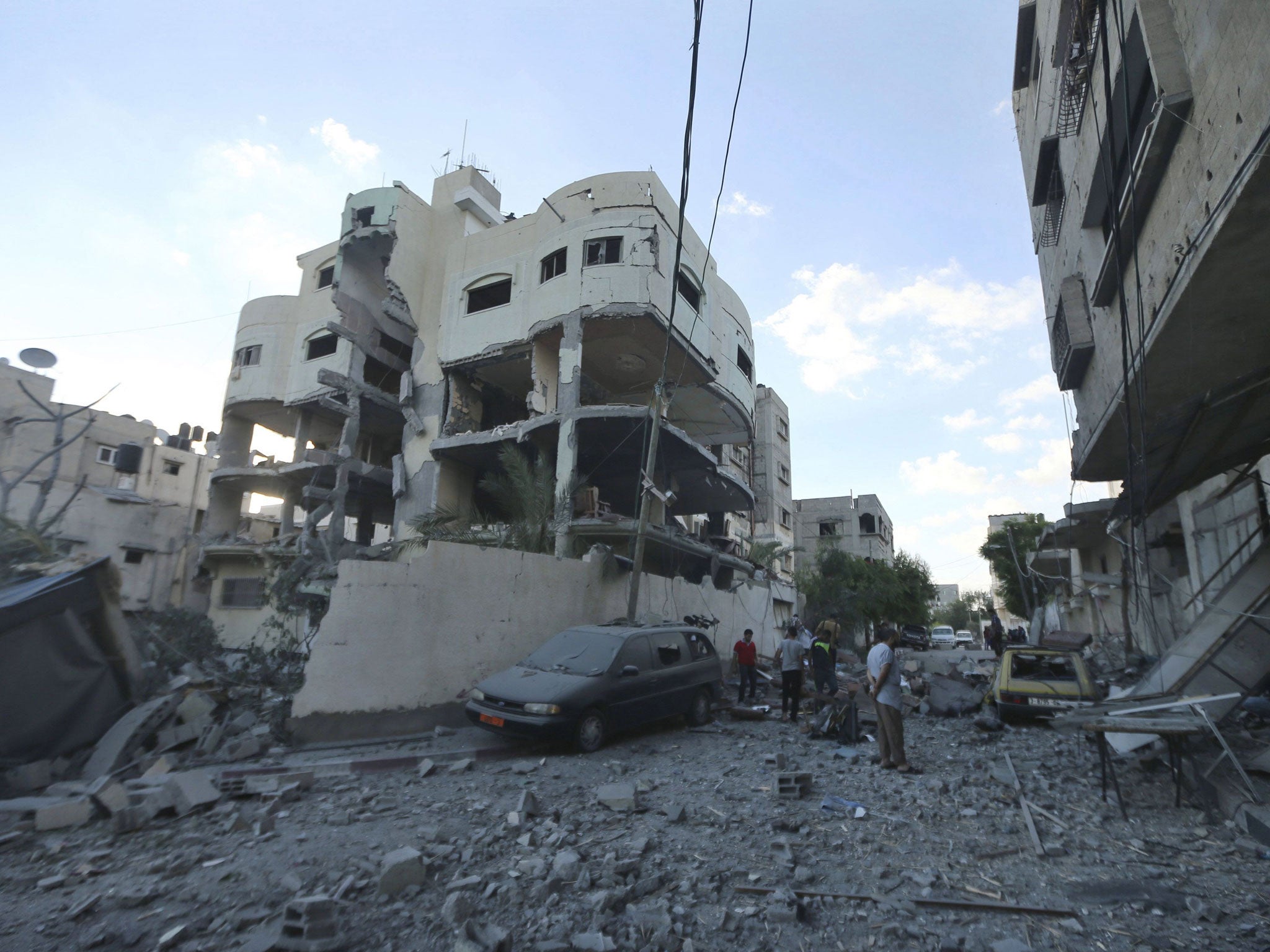Israel-Gaza conflict: Israel targets Hamas leaders as Palestinian death toll rises again
Netanyahu says Hamas 'will pay the price' for rejecting ceasefire yesterday

The Palestinian death toll in Gaza has risen again as Hamas leaders woke to find their homes targeted in renewed missile strikes from Israel.
A statement from the militant group said the overnight bombardment included attacks on the homes of four top Hamas leaders, while health officials said that 204 Palestinians have now died in the nine days of fighting.
It represents an increase of 10 overnight into Wednesday, as yesterday saw the volunteer civilian Dror Khenin, 37, identified as the first Israeli fatality in the conflict. He had been travelling to distribute food to troops at a Gaza border crossing when he was caught up in mortar fire, Haaretz reported.
Israel's prime minister warned yesterday that Hamas would pay a high price for “rejecting” an Egypt-led ceasefire proposal, and last night an estimated 100,000 Gazans were ordered to evacuate their homes in key target areas.
The ceasefire proposal had been accepted by Israel, but Hamas claimed it was never consulted on terms and instead heard about them through the media. It does not consider Egypt's current rulers to be fair peace-brokers, after Cairo's pro-Palestinian government was deposed a year ago.
In an evening address live on TV, prime minister Benjamin Netanyahu said that after Hamas' rejection of the ceasefire, Israel had “no choice” but to respond more forcefully.
“Hamas chose to continue fighting and will pay the price for that decision,” he said. “When there is no ceasefire, our answer is fire.”
After holding its fire for six hours, the Israeli air force resumed its heavy bombardment of Gaza, launching 33 strikes from mid-afternoon, the military said. In all, Israeli aircraft struck close to 1,700 times since 8 July.
Gaza militants, for their part, continued to fire an estimated 120 rockets on Israel throughout the brief lull in missile strikes coming the other way.
A particularly heavy barrage came later around dusk, with more than 40 rockets hitting Israel in just a few minutes, including one that fell on an empty school.
Mr Netanyahu said Israel would “widen and increase” the campaign against Hamas until it had diminished militants' rocket capabilities - but it remains unclear if that will include a ground offensive.
In Washington, the US State Department spokeswoman Jen Psaki said Israel had the right to defend itself but “no one wants to see a ground war”.
“Our effort remains focused on seeing if we can return to a ceasefire,” she said.
The current round has been the deadliest since a major Israeli military offensive in the winter of 2008-09. The previous outbreak of cross-border violence, in 2012, eventually ended with the help of Egypt, at the time seen as a trusted broker by Hamas.
Speaking about what it would take to have Hamas accept a ceasefire, top official Moussa Abu Marzouk said: “The siege on Gaza must be broken and the people of Gaza should live freely like other people of the world. There should be a new equation so that we will not have a war on Gaza every two years.”
Join our commenting forum
Join thought-provoking conversations, follow other Independent readers and see their replies
Comments